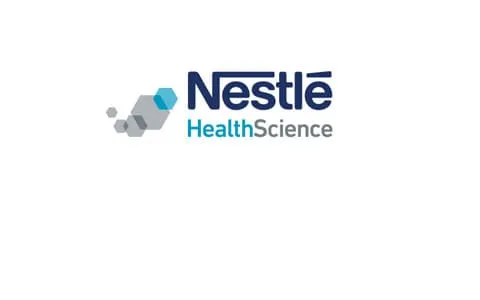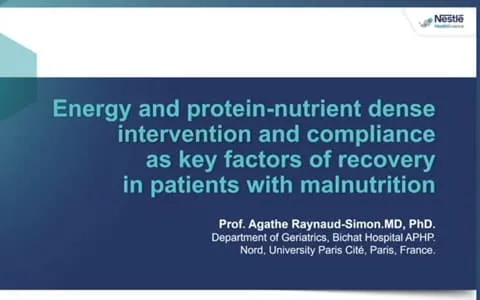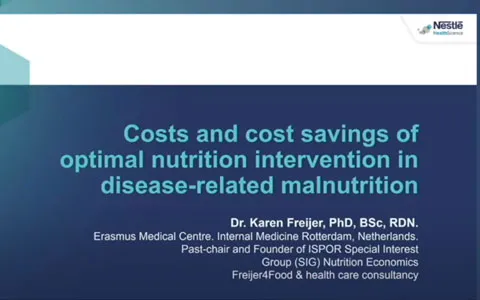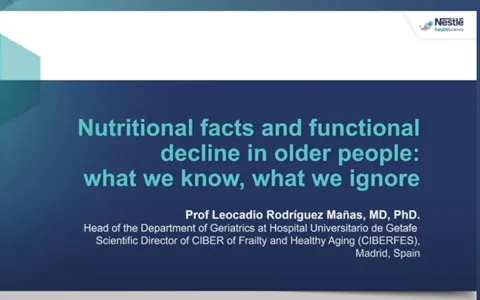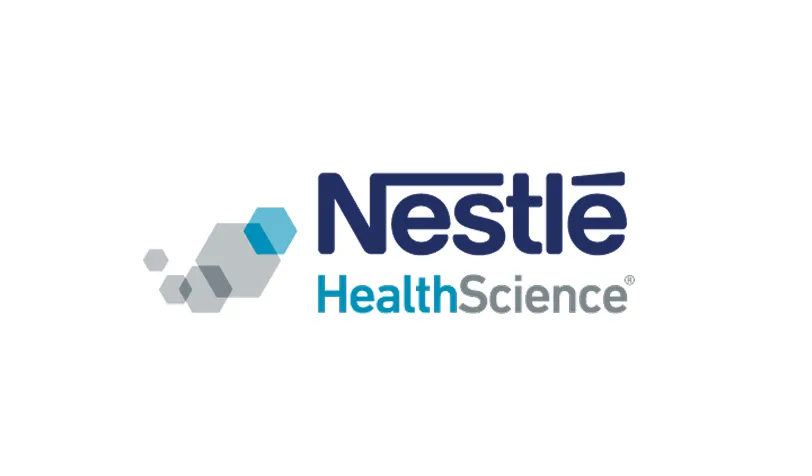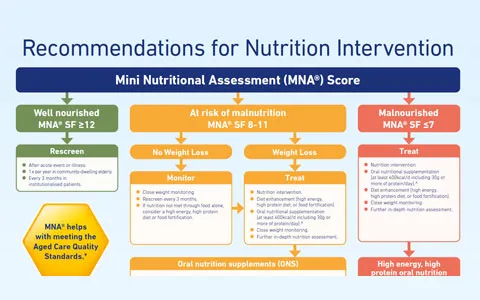The MNA® (Mini Nutrition Assessment) tool was designed and validated in numerous studies in Europe and the U.S over the course of 5 years. At the publication date of this paper, the MNA® was utilised in over 2000 clinical research all over the world, ranging from community care to hospital settings. This paper reviews 30 years of clinical research and practice which has utilised the MNA® tool worldwide.
Guigoz, Y. et al. 2021. Nutritional Assessment in Older Adults: MNA® 25 years of a Screening Tool & a Reference Standard for Care and Research; What Next?
- 16/06/2021 - 10:26 am
Prof. Dr. Agathe Raynaud-Simon at the 44th Congress of the European Society of Clinical Nutrition and Metabolism (ESPEN), 2022. This lecture will focus on patient-related and intervention-related factors that influence compliance, recovery from malnutrition, and other clinical outcomes in older malnourished patients.
Dr Karen Freijer presents at the 44th Congress of the European Society of Clinical Nutrition and Metabolism (ESPEN), 2022. During this session, the burden of disease related malnutrition – with a focus on older adults– together with cost savings of optimal nutrition intervention and the importance of nutrition economics, will be discussed.
Prof. Leocadio Rodríguez Mañas presents at the 44th Congress of the European Society of Clinical Nutrition and Metabolism (ESPEN), 2022 on the role of nutritional status on function in older adults living in community, the role of key nutrients and effective interventions.
As part of the Satellite Symposium at 46th ESPEN Congress on Clinical Nutrition and Metabolism, Milano, Italy, Prof. Phillips discusses the importance of protein, specific amino acids and the role they play in muscle mass physiology.
Presented by Dr. Jane Winter, Accredited Practising Dietitian, this presentation helps us understand the extent of Malnutrition in the community, for us to be familiar with strategies to identify and recognize Malnutrition and to understand range of interventions available.
MNA® (Mini Nutritional Assessment) is a validated nutrition screening/assessment tool to identify individuals 65 year and above who are malnourished or at risk of malnutrition. The online resource utilises a number of questions which patients answer and provides them with a score at the end in which they can determine what category they fit into whether they have: a normal nutritional status, at risk of malnutrition or malnourished.
40 recommendations for nutritional care of older persons with dementia were developed with an emphasis on nutritional adequacy being an integral part of dementia management.
The Mini Nutritional Assessment (MNA®) is a validated screening tool to help identify individuals over the age of 65 who are malnourished or at risk of malnutrition to help determine nutritional status. This guide provides recommended nutrition interventions based on the patients' MNA® scores.
B. Komar, L. Schwingshackl, Georg Hoffmann, Effects of leucine-rich protein supplements on anthropometric parameter and muscle strength in the elderly: A systematic review and meta-analysis, The Journal of nutrition, health and aging, Volume 19, Issue 4, 2015, Pages 437-446 Leucine supplementation has shown to significantly increase gain in body weight (p=0.02), lean body mass (p=0.0005) and body mass index (p=0.001) compared with control groups. Furthermore, the benefit of leucine supplementation has a more profound impact on body weight and lean body mass in individuals who have pre-existing sarcopenia.
Breaking Barriers to Oral Nutritional Interventions in Older Adults with Malnutrition
A national, anonymous 33-item, online purpose-designed survey of GPs and Practice Nurses explores awareness and attitudes toward sarcopenia, and how clinicians play a role in its management. Barriers to effective implementation in primary practice are also identified and discussed.
Lee SY, Lee HJ, Lim JY. Effects of leucine-rich protein supplements in older adults with sarcopenia: A systematic review and meta-analysis of randomized controlled trials. Arch Gerontol Geriatr. 2022 Sep-Oct;102:104758. Data from six randomised controlled trials including a total of 699 participants, demonstrate that the consumption of leucine-rich protein supplements (offering 3-6g leucine per day) can improve muscle strength, muscle mass and performance in sarcopenic older adults compared to a control group (P<0.001) and may be suggested as a nutritional treatment for sarcopenia.
